
MH Intelligent Warehouse
In today's fast-paced world, the need for efficient and intelligent warehousing solutions is at an all-time high. This is particularly true in the textile industry, where logistics managers, warehouse operators, and supply chain experts continuously strive to optimize operations and cut costs. The introduction of MH Intelligent Warehousing Systems offers businesses the opportunity to harness advanced technology to streamline processes and enhance productivity.
MH Warehouse Building Area: 10,000 ㎡
Number of Pallet Cargo Spaces: 19,116 pcs, 24m high
Scope of Supply:
- 17 autonomous mobile robots (AMRs)
- 80 pallet conveyors and 700 box conveyors
- 3 straight track double-deep stackers + 3 curved tracks double-deep stackers (21.8m)
- 1 high-position stacker for raw materials, 3 robotic arms for finished product stacking
- 2 pallet stacker (RGVs), 1 comprehensive Hetu system (WMS+WCS)
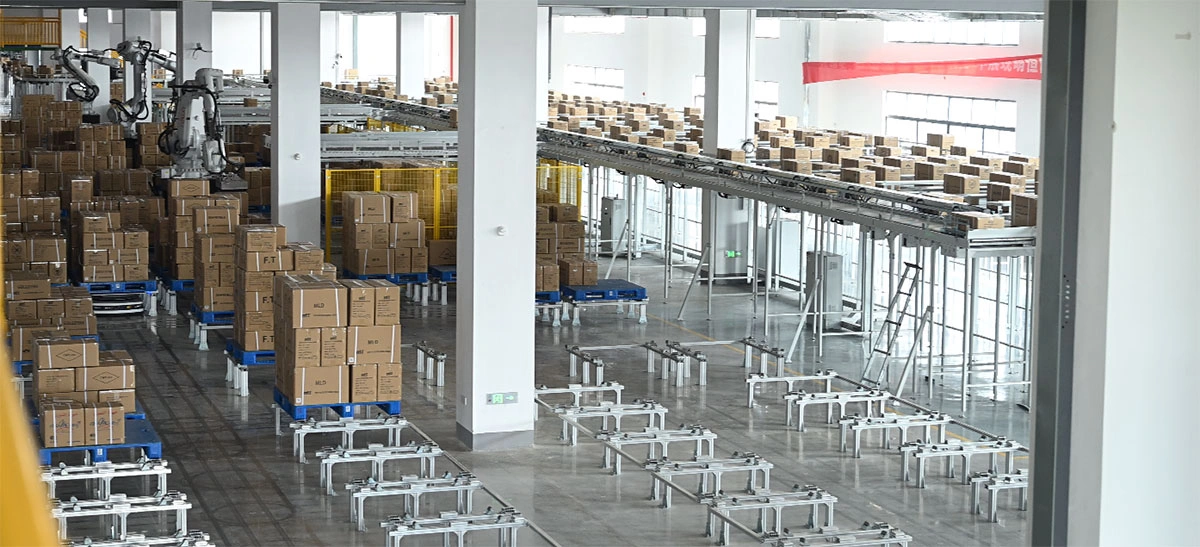
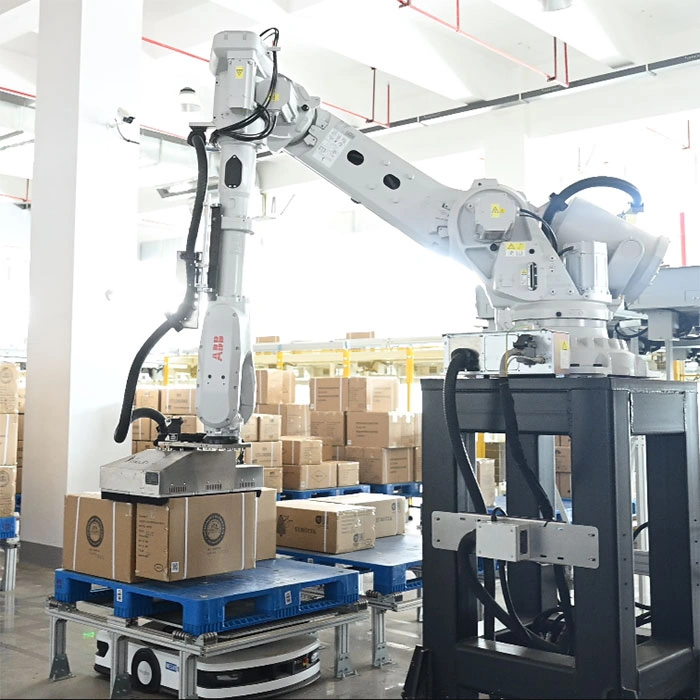
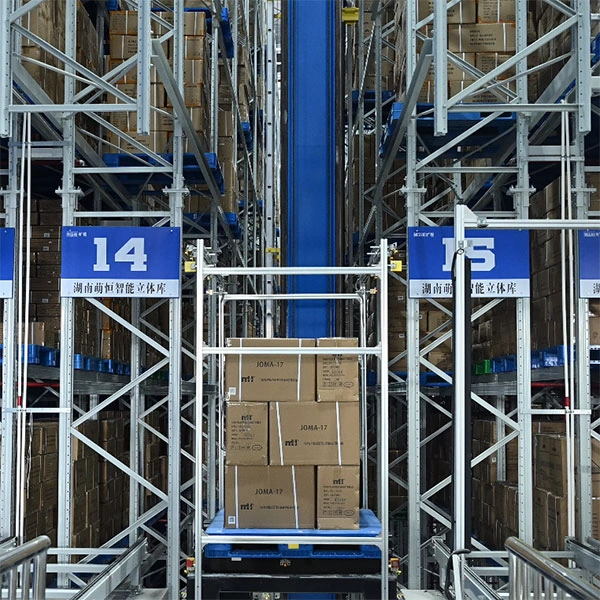
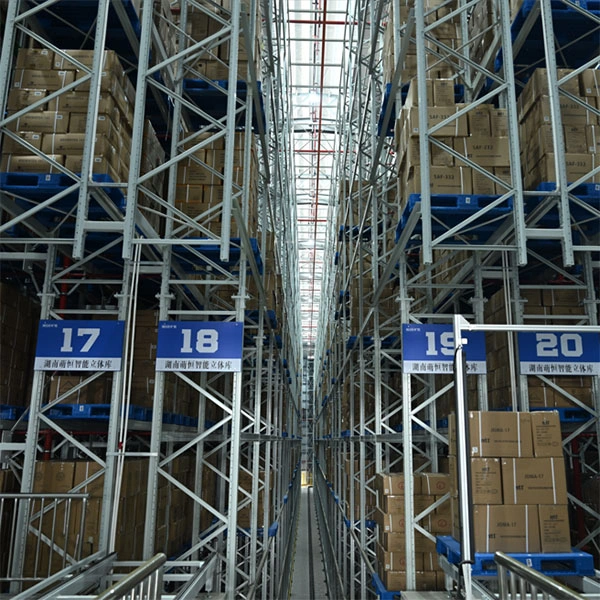
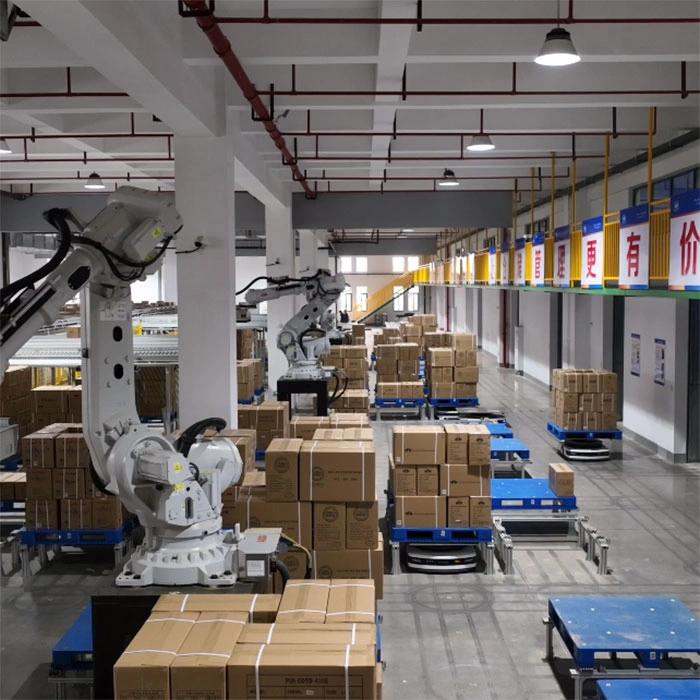
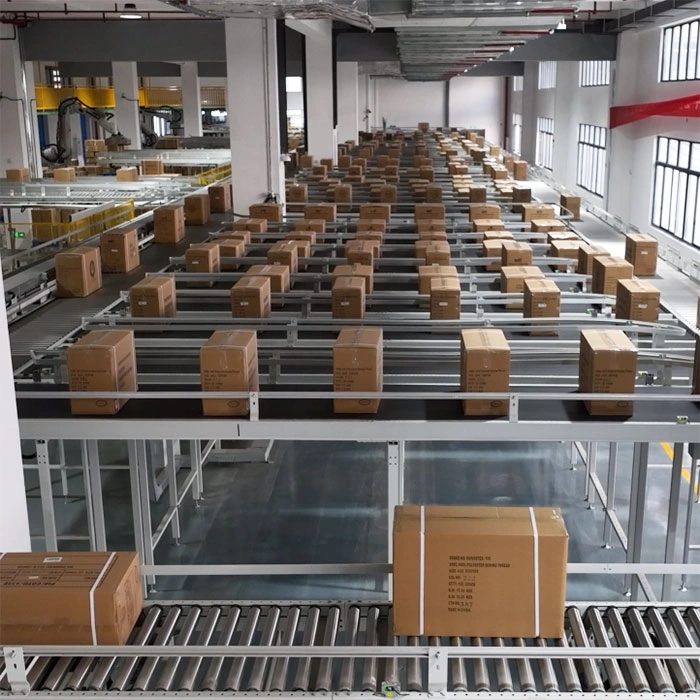
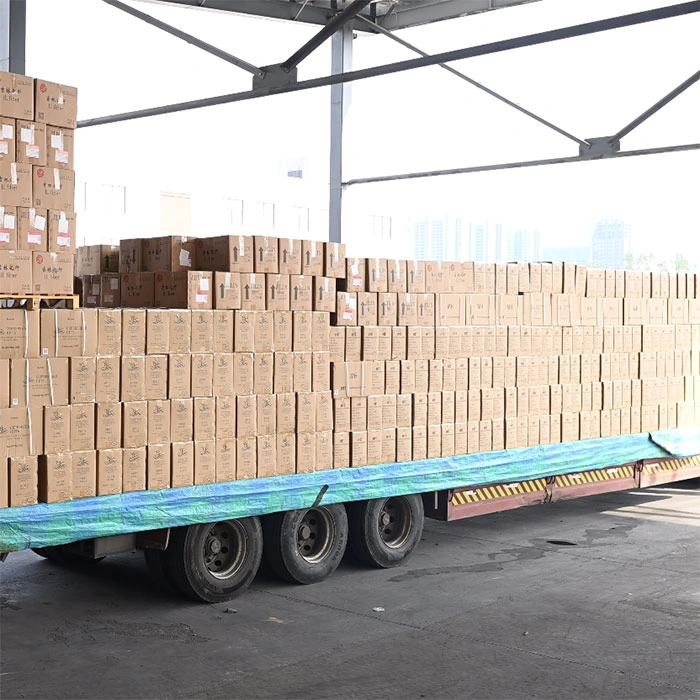
The Rise of Intelligent Warehousing in the Textile Industry
The textile industry is no stranger to complexity, with intricate supply chains and fluctuating demand patterns. Intelligent warehousing provides the perfect solution by integrating advanced technologies to manage inventory, automate processes, and enhance decision-making capabilities. By adopting intelligent warehousing, textile businesses can efficiently manage resources, minimize wasted time, and stay competitive in a fast-paced market.
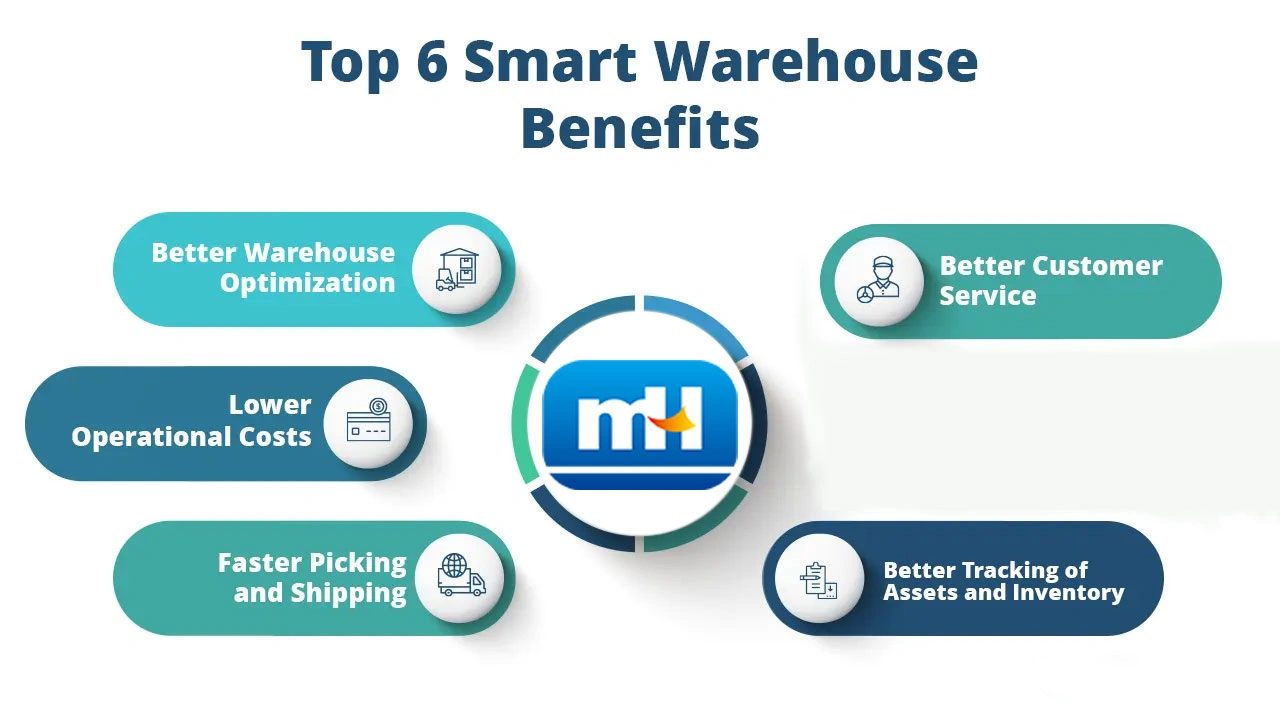
Better Warehouse Optimization
Intelligent warehousing systems have transformed how warehouses are managed, offering unparalleled warehouse optimization opportunities. These systems utilize AI algorithms and data analytics to analyze incoming and outgoing inventory, ensuring optimal storage and retrieval processes. With real-time data, businesses can make informed decisions, reducing disruptions and maintaining an efficient flow of goods.
Minimize Operations Cost
One of the primary benefits of intelligent warehousing is its ability to minimize operational costs. By automating repetitive tasks such as sorting, picking, and packing, businesses can significantly reduce labor expenses while improving accuracy and speed. This efficiency leads to fewer errors, less wastage, and ultimately, lower costs, allowing textile companies to allocate resources more effectively.
Quick Shipping, Picking, and Packing
Speed is crucial in the textile industry to meet consumer demands and maintain a competitive edge. Intelligent warehousing enables quick shipping, picking, and packing by leveraging advanced robotics and automated systems. With streamlined processes, businesses can ensure timely deliveries and improve customer satisfaction, building reputation and loyalty.
Better Tracking of Assets and Inventory
Accurate inventory tracking is essential for efficient warehouse management. Intelligent warehousing systems offer businesses enhanced visibility and control over their assets and inventory. By utilizing IoT sensors and RFID technology, businesses can monitor stock levels, track movement, and prevent loss or misplacement. This level of transparency allows for better planning, reduced stockouts, and improved inventory management.
Top 6 Smart Warehouse Technologies & Their Implementation
The implementation of smart warehouse technologies is rapidly gaining traction in various industries, including textiles. These technologies are revolutionizing how businesses operate, providing enhanced efficiency and productivity.
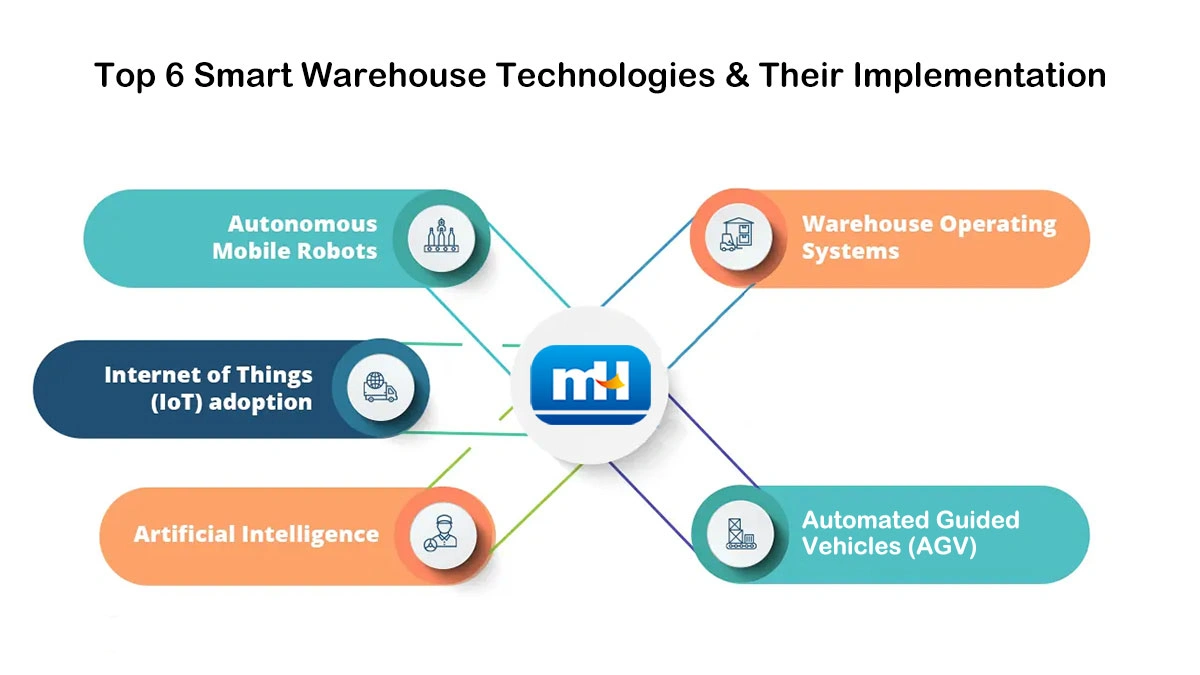
1. Autonomous Mobile Robots
Autonomous mobile robots (AMRs) are robots capable of navigating complex warehouse environments without human intervention. They can transport goods, assist in order fulfillment, and undertake various other tasks. AMRs help reduce the need for manual labor and improve efficiency by optimizing the movement of goods within the warehouse.
2. Internet of Things (IoT)
IoT technology connects physical devices via the internet, enabling them to communicate and share data. In the context of warehouses, IoT can be used to monitor conditions such as temperature, humidity, and location. This technology provides real-time insights into warehouse operations, ensuring that stock is maintained under optimal conditions and minimizing the risk of damage.
3. Artificial Intelligence
AI plays a crucial role in intelligent warehousing by analyzing large volumes of data to optimize decision-making processes. AI algorithms can predict demand patterns, allocate resources, and identify potential inefficiencies within the warehouse. By using AI, businesses can make data-driven decisions, improve efficiency, and stay ahead of the competition.
4. Warehouse Management Systems
Warehouse Management Systems (WMS) are software platforms that help manage warehouse operations. WMS solutions can automate order processing, inventory control, and resource allocation. By implementing a WMS, businesses can enhance their operational efficiency, minimize errors, and improve overall productivity.
5. Automated Guided Vehicles (AGV)
Automated guided vehicles (AGVs) are vehicles equipped with sensors and navigation systems, enabling them to transport goods throughout a warehouse without human intervention. AGVs can enhance warehouse efficiency by automating the movement of goods, reducing the need for manual labor, and optimizing space utilization.
Conclusion
Implementing MH Intelligent Warehousing Systems can provide significant benefits to textile businesses, from better warehouse optimization and minimized operational costs to quick shipping and improved asset tracking. By adopting smart warehouse technologies such as autonomous mobile robots, IoT, AI, WMS, and AGVs, businesses can enhance their efficiency, maintain a competitive edge, and stay ahead in the fast-paced textile industry.
For those interested in exploring the potential of intelligent warehousing solutions further, consider reaching out to industry experts or conducting additional research to determine the best approach for your business. An investment in intelligent warehousing is an investment in the future success of your organization.
 Whatsapp:
Whatsapp: